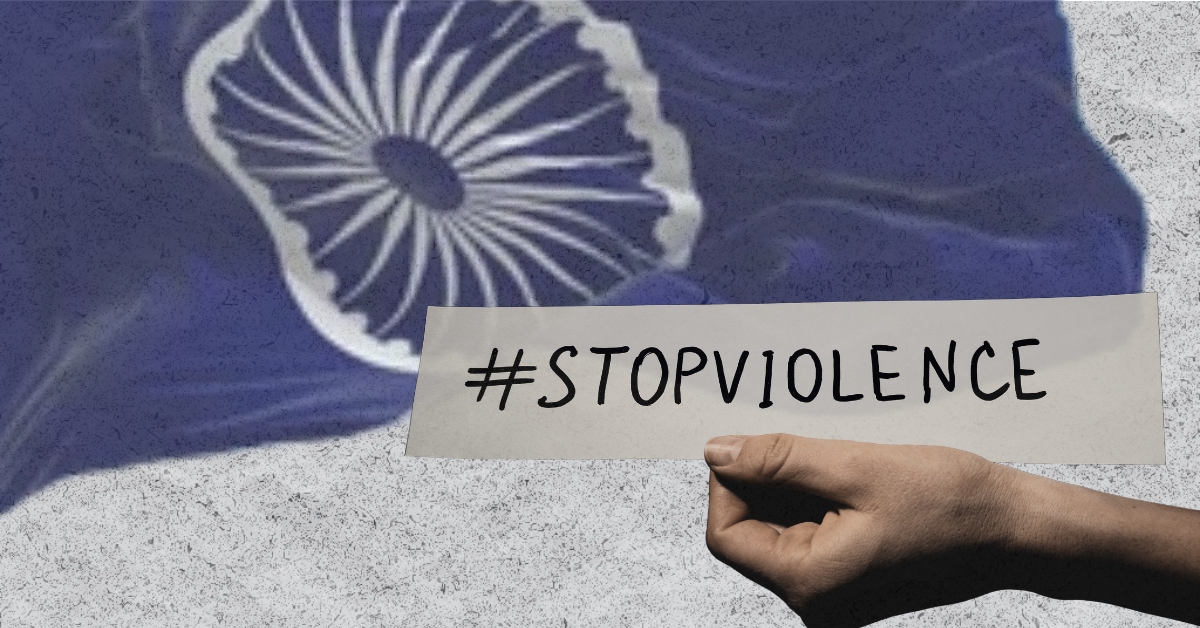On June 24 (2025), the Citizens for Justice and Peace (CJP) filed a formal complaint with National Commission for Scheduled Castes (NCSC) urging a thorough investigation and inquiry by the commission regarding the 30 anti-Dalits happened across the states of Uttar Pradesh, Bihar, Madhya Pradesh, Rajasthan, Gujarat, Andhra Pradesh, Himachal Pradesh, Karnataka and Maharashtra.
CJP approached the commission under Article 338(5)(a) and (b) of the Constitution, which mandates the National Commission for Scheduled Castes to investigate and monitor all matters relating to the safeguards provided for the Scheduled Castes under the Constitution or under any other law, and to inquire into specific complaints with respect to the deprivation of rights and safeguards of the Scheduled Castes.
The complaint meticulously lists of 30 numerous atrocities from April to June 2025, primarily from Uttar Pradesh, Madhya Pradesh, Rajasthan, Bihar, Gujarat, Himachal Pradesh, Andhra Pradesh, Karnataka, and Maharashtra. These incidents range from horrific sexual assaults, including rape and gang-rape of minor Dalit girls and women, to brutal murders, physical violence, and public humiliation. Instances include a deaf and mute Dalit girl being raped in Rampur, a 10-year-old boy brutally murdered in Etah, and a Dalit groom being beaten and forced off his horse in Agra.
Beyond physical violence, the complaint highlights social discrimination, such as Dalits being denied cremation rights, barred from temple entry, and subjected to casteist slurs. These incidents reveal a deeply ingrained prejudice that continues to inflict severe trauma and deny basic human rights. CJP’s filing with the NCSC is a crucial step towards seeking accountability for perpetrators and ensuring justice and protection for the marginalised Dalit community, emphasising the urgent need for stringent action and systemic change.
Widespread crimes against SCs violating the PoA Act and Civil Rights
CJP Stated in its complaint that, these incidents directly contravene the spirit and letter of the Protection of Civil Rights Act, 1955, and more critically, the Scheduled Castes and Scheduled Tribes (Prevention of Atrocities) Act, 1989 (SC/ST PoA Act), which specifically aims to prevent atrocities against Scheduled Castes and to provide for special courts for the trial of such offenses and for relief and rehabilitation of the victims. The recurring nature of these incidents, especially the widespread instances of sexual violence and physical attacks, highlights a severe lapse in the implementation and enforcement of these crucial legislations.
Summary of the Incidents Reported
Targeted crimes against SCs, a pattern of abuse
Through complaint, CJP highlights that systemic, widespread incidents of caste-driven oppression that are prevalent countrywide, across states governed by different political dispensations pointing to a deep-rooted societal malaise that has not only acquired a frightening level of ‘normalised violence and oppression’ but also is ‘allowed because of structured levels of immunity’. While some measure of space and political representation has been ensured due to the affirmative action of reservations, even decades after independence, the Dalits have not achieved total emancipation. Even today, Dalits continue to be vulnerable to such attacks which are not just violent in nature but also emerge from trivial social stigma.
CJP also stated in its complaint that as per the NCRB report, there are a total of 70,818 cases of atrocities against SCs and 12,159 against STs that remained pending for investigation at the end of the year 2021. A total of 2,63,512 cases of SCs and 42,512 cases of STs were placed for trial in the courts. At the end of the year, more than 96 percent of the total cases were still pending for trial. Though the charge-sheeting percentage was more than 80%, but the conviction rate remained below 40%.
Legal issues and violations involved in anti-Dalits crimes
CJP mentioned in its complaint that the pervasive nature of these incidents highlights a profound and alarming issue: the persistent and egregious violation of the fundamental rights of Scheduled Castes. These crimes are not isolated, but rather represent a systemic failure to protect a vulnerable population, often underpinned by deeply entrenched caste-based discrimination.
Such acts directly violate various provisions of the Scheduled Castes and Scheduled Tribes (Prevention of Atrocities) Act, 1989 (PoA Act), specifically Sections 3(1) and 3(2). These sections criminalise intentional insults, intimidation with intent to humiliate, caste-name abuse in public view, and obstruction of access to common property resources or public places.
Furthermore, the willful neglect of duties by public servants, particularly police officers, is a direct violation of Section 4(1) of the PoA Act, and potentially Sections 198 and 120 of the Bharatiya Nyaya Sanhita (BNS) 2023 for public servants disobeying the law or voluntarily causing hurt to extort confessions, as CJP added
Prayers of CJP for intervention
In light of these distressing facts, CJP urgently implores the National Commission for Scheduled Castes (NCSC) to take immediate and decisive action. The primary prayers include mandatory registration and monitoring of FIRs, directing DGPs of affected states (Uttar Pradesh, Madhya Pradesh, Rajasthan, Bihar, Gujarat, Himachal Pradesh, Andhra Pradesh, Karnataka, and Maharashtra) to provide exhaustive reports on incident status, ensuring proper legal sections, and immediate registration of new FIRs where needed. CJP also seeks independent, impartial, and expeditious investigations with active NCSC monitoring, calling for Special Investigation Teams (SITs) and regular progress reports.
Crucially, it requests mandatory suspension and departmental proceedings against negligent public servants under the SC/ST (PoA) Act, emphasising accountability. Furthermore, CJP prays for the immediate and comprehensive provision of compensation, protection, and rehabilitation for victims and their families, ensuring medical, psychological, and legal aid.
Finally, CJP urges the NCSC to issue special, binding guidelines and advisories for prevention, including identifying atrocity-prone areas, mandating sensitisation training for police, establishing mechanisms for action against delinquent officials, and fostering public awareness and community engagement. The NCSC’s robust intervention is paramount to secure justice and deter future atrocities.
Related
CJP files complaint with NCSC, 11 anti-Dalit incidents highlighted since July 2023
CJP informs NCSC of Bihar police beating up minor Dalit boys for celebrating Holi; seeks action
